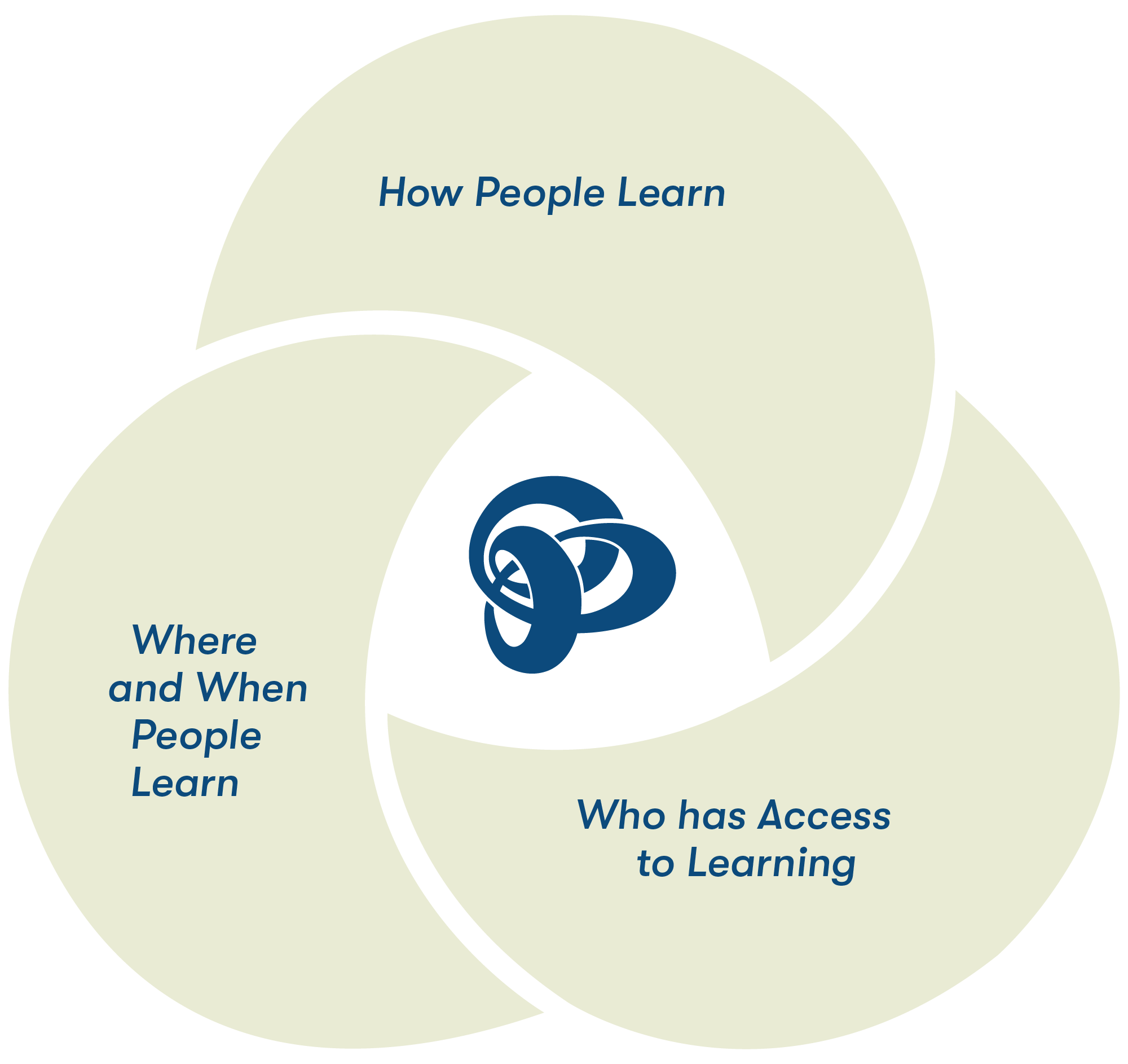
Our Mission
Our Mission
The Institute for Learning Innovation works with individuals, organizations, and communities to develop and support lifelong, free-choice learning as a mechanism for helping solve the major challenges facing humanity.
Our Vision
The Institute for Learning Innovation imagines a future that holds widespread appreciation for a learning ecosystem that makes lifelong, free-choice learning possible and for the importance of investing in the research, development and training that ensures that this system is as effective and accessible to as many people as possible.
Our purpose
95% of all learning happens OUTSIDE of the classroom. Still, the funding and focus remain centered around schools. For over 30 years we have conducted research that demonstrates the impact made when people learn in settings like museums, science centers, libraries, and community groups. As leaders in this field, we use our findings to support and bring innovation to these spaces so that people everywhere can access the learning opportunities they desire and deserve.
Our Values
The Institute for Learning Innovation values diversity, equity, and inclusion, exemplified by the use of evidence, systems thinking, and collaboration in our pursuit of a more just future for all:
-
- In our process (the way we work)
- In our products and solutions that support lifelong, free-choice learning
Our Approach
For more than 30 years, ILI has been an innovator in thinking systemically about learning by:
- Investigating how, why, where, and when people and groups learn over their lifetime.
- Measuring the educational impact of communities and organizations in support of more robust and resilient educational ecosystems.
- Convening learning professionals, researchers, and policymakers to help nations, communities, and organizations define the knowledge and spaces for creating workable solutions.
- Connecting knowledge and practice to enable communities and organizations to build educational experiences that lead to active, engaged, and lifelong learners.
ILI is solution-focused and action-oriented, and helps systems support learners and learners navigate systems. ILI maintains a proven track record of advocating for a broader, more inclusive understanding of what constitutes public education. ILI strives to create a future rich with lifelong, free-choice learning opportunities for all.
What is free-choice learning?
Free-choice learning is about self-motivated learning.
The Institute for Learning Innovation (ILI) uses this term to describe this type of learning, rather than terms like informal learning or non-formal learning. We believe this term correctly emphasizes that learning is ultimately about choices – why we personally and collectively choose what, where, how, and with whom to learn.
Free-choice learning can and does happen anywhere, including sometimes in schools, but most commonly happens in places like museums, libraries, on the internet, on vacation, and while engaged in hobbies and other personal pursuits.
By focusing on free-choice learning, ILI researchers, trainers, and developers are able to better understand and support the vast majority of learning opportunities that children and adults engage in across the spaces and times of their lives.
